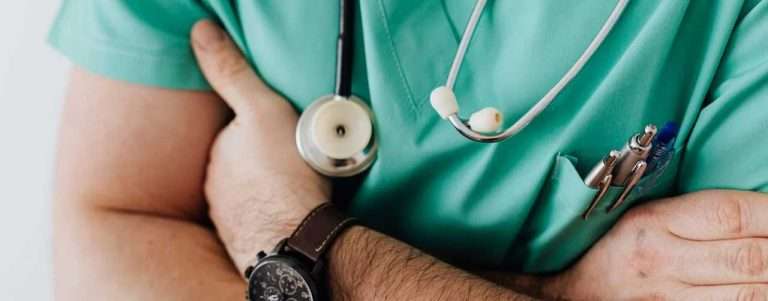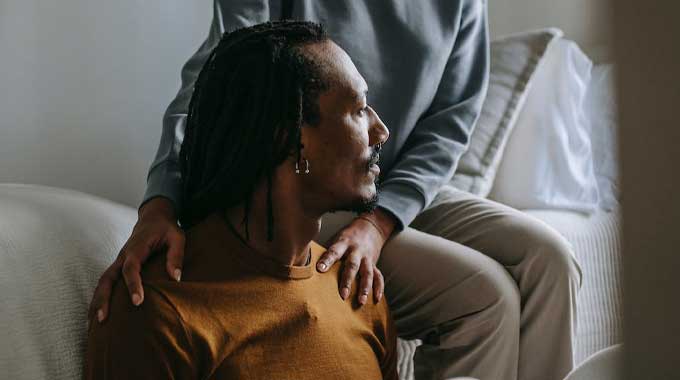Alcohol is a highly abused substance in the US due to its accessibility and rewarding effects. Ritalin is a prescription medication that, although less common, is sometimes abused.
Substance abuse is a growing issue that addiction treatment is constantly trying to evolve to overcome. If a person is using Ritalin and alcohol together, they likely have a substance use disorder (SUD). Luckily, there are many treatment options for addiction available.
Substance Abuse
Substance abuse refers to any misuse of a substance. ‘Misuse’ could be explained as improper use, such as using a substance beyond recreational or medical purposes. Alcohol is frequently used for substance abuse as it is easy to purchase and relatively cheap. Alcohol is abused by consuming more than the recommended amount. The Centers for Disease Control and Prevention (CDC) recommend one drink or less for women per day. For men, they recommend two drinks or less per day.
Misuse for prescription medication means using the drugs for longer than prescribed, or for any purpose other than what they are prescribed for, or in higher doses than recommended. Snorting prescription drugs instead of oral administration could be an indication of substance abuse.
Purchasing prescription drugs illegally, without a prescription, is also a form of substance abuse. Furthermore, it carries its own risks. Without a drug testing kit, it is impossible to know whether the drugs are pure or not. In recent years in the US, there have been many cases of illicit drugs being sold that are laced with the powerful opioid, fentanyl. When abused, fentanyl runs a high risk of a drug overdose.
Other illicit drugs that are often abused include cocaine, ecstasy, and heroin. A person who is frequently abusing any of these substances may need substance abuse treatment.
What is Ritalin
Ritalin is the brand name of methylphenidate and it is also sold under the brand Concerta. Ritalin and Concerta are prescription stimulants used to treat attention deficit hyperactivity disorder (ADHD). Attention deficit hyperactivity disorder (ADHD) is a condition that affects attention and behavior and it is usually diagnosed in childhood. ADHD is characterized by a lack of impulse control, ability to focus, and increased energy/restlessness.
The condition is more frequently diagnosed in boys than in girls as boys are more likely to have obvious signs, such as destructive behavior. Often, girls can go undiagnosed.
ADHD medication directly affects the striatum, the area of the brain that is responsible for motivation, cognition, and taking action. The medication increases the amount of dopamine, the reward chemical, in the brain. In children and adults diagnosed with this condition, ADHD meds can allow them to control impulses and be more productive. However, as drugs that treat ADHD are stimulants, they have a high propensity for abuse.
Do People Abuse Ritalin?
Yes, Ritalin can be abused. Ritalin is a central nervous system (CNS) stimulant that affects the brain and body. CNS stimulants increase physical energy, cognitive functioning, focus, and attention.
Other stimulants (such as cocaine or methamphetamine) provide a similar effect in adults, but ADHD drugs are more cost-effective and accessible. There is no specific demographic for Ritalin abuse and abuse of stimulant medication is found among a wide range of people. It can be used by people suffering from a substance use disorder, people in higher education, or people who work in demanding professions.
Alcohol Abuse
While it is illegal to purchase alcohol under the age of twenty-one, it is still an accessible and mind-altering substance. This substance affects people’s behavior, thoughts, and feelings. Under the influence of alcoholic drinks, a person may engage in risky behavior and try other drugs.
Alcohol abuse poses many health risks and it is known to affect the kidneys, liver, and heart. In fact, drinking too many alcoholic drinks in a short time can result in alcohol poisoning. Alcohol poisoning can occur if a person drinks a ‘toxic’ level of the substance. As everyone has a unique tolerance to the substance, it is impossible to determine how many drinks a person would have to consume to reach this level. In severe cases, alcohol poisoning can cause a coma, brain injury, or death.
Furthermore, alcohol is an addictive substance that a person may become psychologically or physically dependent on. According to the National Institute on Alcohol Abuse and Alcoholism, almost 15 million adults in the US suffer from alcoholism.
Withdrawal Symptoms
After binge drinking alcohol, a person will experience withdrawal symptoms commonly known as a ‘hangover’. A person suffering from alcoholism may binge drink for a long period of time and develop a physical dependence. In this case, the withdrawal symptoms will be more severe.
During alcohol withdrawal, a person may be tempted to relapse to ease the symptoms. For this reason, it can be helpful to seek addiction treatment during this period. Some common indicators of alcohol withdrawal include:
- Anxiety
- Nausea
- Vomiting
- Nightmares or disturbed sleep
- Depression or low mood
- Sweating
- Irritability
- Decreased appetite
- Headaches
Symptoms may be mild to severe depending on a person’s age, amount of alcohol, and length of alcohol abuse. Symptoms can last up to seven days but are not typically life-threatening.
Taking Ritalin and Alcohol Together
Alcohol and Ritalin should not be mixed. This is a form of drug abuse and carries an increased risk of negative drug interaction. Alcohol is a depressant, whereas Ritalin is a stimulant.
Mixing alcohol with Ritalin could allow a person to party or drink more for a longer time. Drinking alcohol can cause a person to feel drowsy, but stimulant medications like Ritalin will counteract this effect.
One or both substances come with unpleasant side effects. When combining alcohol with Ritalin, those side effects can be exacerbated.
Negative Effects of Mixing Ritalin and Alcohol
Used in a recreational setting, Ritalin will give a person a perceived increase in their ability to drink alcohol. Drinking a higher quantity of alcohol than normal could potentially result in alcohol poisoning.
A side effect of using Ritalin is increased nervous energy. As a result of this, mixing alcohol and Ritalin can cause a person’s heart rate to increase beyond a safe level. Similarly, it can cause increased blood pressure.
As it is a stimulant, a person may struggle to sleep after Ritalin use. Drinking alcohol can have a similar effect, so combing the two can seriously alter a person’s sleeping ability.
As both alcohol and Ritalin can cause a decrease in appetite, mixing the two drugs can cause weight loss. Losing a large amount of weight through unhealthy means can cause serious health risks.
Long-Term Consequences
Taking Ritalin with alcohol can cause immediate consequences, but over time a person could be left with long-term issues. Some potential long-term consequences include:
- Anxiety: Alcohol use can increase anxiety, especially during withdrawal. Similarly, taking Ritalin can increase nervous or anxious energy.
- Mood alterations: Alcohol and Ritalin abuse can cause mood swings. As both drugs alter brain chemistry, this can become a long-term issue.
- Sleep problems: A person could develop a sleep disorder, such as insomnia.
- Serious illness: Combining these substances will result in high blood pressure. High blood pressure can cause strokes, heart disease, or cardiac arrest in later life.
- Physical dependence: Prolonged alcohol or Ritalin use can cause dependence. As alcohol thins the blood, combining the two can increase the amount of Ritalin in the bloodstream. Over time, this can increase the likelihood of the body becoming dependent.
It is possible to take a Ritalin overdose. Similar to other stimulants, a Ritalin overdose can cause unpleasant symptoms such as an increased heart rate, confusion, hallucinations, psychosis, and sudden death.
Types of Addiction Treatment
Mixing substances is a sign of drug abuse. Luckily, there are many types of treatment a person can choose from. In cases of drug dependency, a person may require a medical detox. Medical detox is when a person will receive addiction medicine to ease the symptoms of withdrawal and prevent relapse.
For long-term recovery, those who abuse alcohol or other substances find that support groups are effective. Treatment programs that include group therapy are effective as they emotionally support the person. An addiction recovery journey is lifelong and requires a lot of support.
Furthermore, clinical psychiatry finds that counseling or other types of therapy can help a person through this difficult time. Oftentimes, a mental health issue is underpinning a person’s addiction. While self-assessment can be powerful, getting to the root of problematic drug and alcohol use typically requires professional help.
Treatment Facilities
If you or a loved one is taking Ritalin with other substances, Cornerstone can help. Since 1984, we have successfully provided mental health, alcohol, and drug treatment.
At our treatment centers in Orange County, we offer a detox program, primary rehabilitation, extended care program, outpatient treatment, alternative sentencing, recovery homes, and sober living. We also offer support for family members dealing with addiction.
At Cornerstone, we offer a range of services to suit individual needs. We understand that seeking treatment can be a daunting task and we are here to help and advise. Call us to discuss our treatment process and begin your recovery journey today.






